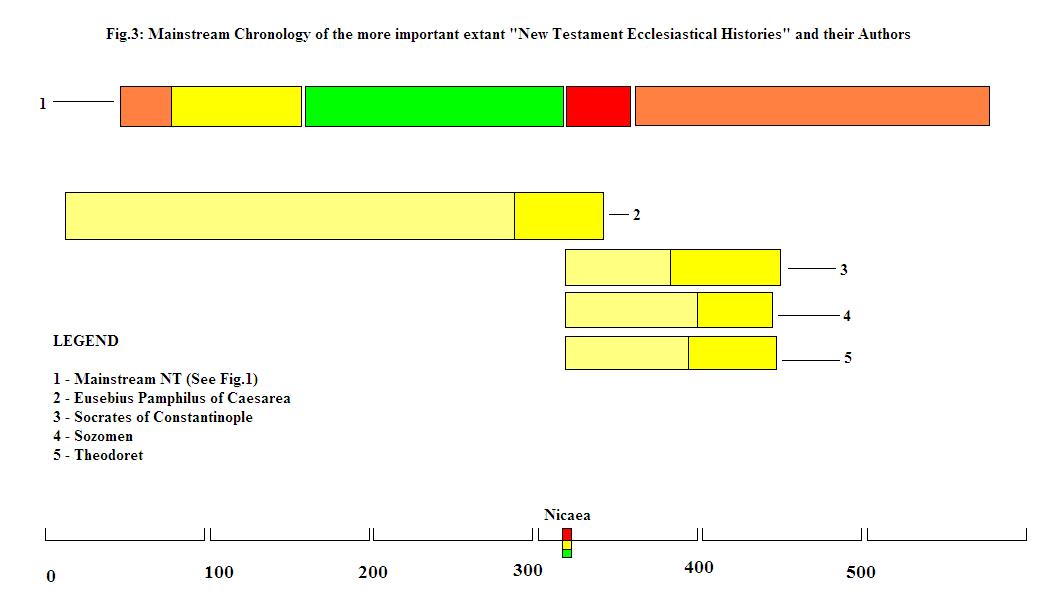
 |
Freethought & Rationalism ArchiveThe archives are read only. |
|
|
#1 | |||
|
Contributor
Join Date: Mar 2003
Location: London UK
Posts: 16,024
|
Quote:
Quote:
Quote:
Would someone kindly explain why xianity is not just a bastardised form of Greek tragedy? |
|||
|
|
|
|
#2 | |
|
Contributor
Join Date: Mar 2003
Location: London UK
Posts: 16,024
|
Quote:
|
|
|
|
|
|
#3 |
|
Contributor
Join Date: Mar 2003
Location: London UK
Posts: 16,024
|
Mark 1
1The beginning of the gospel of Jesus Christ, the Son of God |
|
|
|
|
#4 | ||
|
Contributor
Join Date: Mar 2006
Location: Falls Creek, Oz.
Posts: 11,192
|
Quote:
An excellent observation! Written in Greek for a greek audience, a story about the return of the Rightful King of the Ancient Hebrew Sages which ends in the Rightful God subject to suffereing and outrage at the hands of the authorities - on the cross, about one century before Trajan cricified 1,200 Jews in the city of Emaus. Constantine, in his letter to Arius of c.333 CE confirms this assessment when he provides us with a quote from the little known figure of Arius of Alexandria. The quoted words of Arius relate to the reasons which prompted Arius to write the things that he did against the doctrine of the christian religion at that time. Constantine writes (about Arius) .... Quote:
the "New and Strange Testament" as a Greek Tragedy, and Arius did not like the representation. The God of Arius and the God of the School of Plato were not dissimilar. Arius was no christian bishop - he was a priest of the old Hellenistic religions which were swept aside and destroyed by Constantine. The Arian controversy was not about theology, it was about the politics of the new imperially sponsored state religion, and its destruction of the old guardian class, and the temple networks. With 21st century Christian glasses firmloy affixed to our eyes when most people look at the ground of the fourth century people are looking for things "Christian" unaware that the political reality was one in which the "New and Strange Christian regime" was utterly destroying the most ancient and highly revered knowledge and civilisation of the Greeks. |
||
|
|
|
|
#5 |
|
Contributor
Join Date: Mar 2003
Location: London UK
Posts: 16,024
|
But why is arianism treated as a heresy and not as paganism?
Interestingly an Orthodox xian told me the Islamic conquests were primarily in Arian areas. |
|
|
|
|
#6 |
|
Veteran Member
Join Date: Sep 2004
Location: Birmingham UK
Posts: 4,876
|
|
|
|
|
|
#7 |
|
Contributor
Join Date: Jun 2000
Location: Los Angeles area
Posts: 40,549
|
Arianism is heresy and is not crypto-paganism (any more than orthodox Christianity is crypto-paganism.)
Pete is the only person in the world who thinks that Arius was a pagan, and he has not managed to come up with any evidence or even a coherent theory as to why Arius might have been a pagan. "Arius the pagan" is about to join the list of topics that are not welcome in this forum. |
|
|
|
|
#8 | |
|
Contributor
Join Date: Mar 2006
Location: Falls Creek, Oz.
Posts: 11,192
|
Quote:
 The Christian Regime's Portrayal of Arius as a Christian Lets say that Christian's of the 4th century looked like ducks. Lets say that we could hear the quacking and see the walking. The Christian Ecclesiatical Historians affirm Arius is a duck.  But boy, could Arius run like a rabbit from the hunter! (See Constantine's Dear Christian Arius Letter of c.333 CE) Demographics of 95% pagan populace alone should suggest that Arius has been misrepresented by the histories authored in 4th and 5th century ecclesiastical scriptoria. The converse of such a ONE SIDED HISTORY suggests that the argument that Arius was a pagan is not unfeasible. Arius denounced Jesus so vehemently that he was shut up. Arius was no feeble christian clone. He was an Ares, says Constantine. Who brought state orthodoxy into the light; Who hurled his wretched self into darkness. Who ended his labors with this. Who wrote that he did not wish God to appear to be the subject of suffering of outrage Who wrote that (on the above account) he suggested and fabricated wondrous things indeed in respect of the faith. Who wrote books that collected and gathered terrible and lawless impieties Who wrote books that agitated tongues [Editor: Very popular books] Who wrote books which deceived and destroyed Who introduced a belief of unbelief. Who introduced a belief of unbelief that is completely new. Who accepted Jesus as a figment Who called Jesus foreign Who did not adapt, he did not adapt (it was said twice) to God [Editor: the "new" orthodox God Who was twice wretched Who reproached the church Who grieved the church Who wounded he church Who pained the church Who demoted Jesus Who dared to circumscribe Jesus Who undermined the (orthodox) truth Who undermined the (othodox) truth by various discourses Who detracted from Jesus who is indetractable Who questioned the presence of Jesus Who questioned the activity of Jesus Who questioned the all-pervading law of Jesus Who thought that there was a place outside of Jesus Who thought that there something else outside of Jesus Who denied the infiniteness of Jesus Who did not conclude that God is present in Christ Who had no faith in Christ Who did not follow the law that God's law is Christ Who had little piety toward Christ Who detracted from the uncorrupted intelligence of Jesus Who detracted from the belief in immortality of Jesus Who detracted from the uncorrupted intelligence of the Church Who was barred publicly from God’s church Who did these things? Arius of Alexandria as described by Constantine (Letter of 333 CE) Does Constantine himself describe a christian Arius? Could Constantine possibly describe a pagan Arius? I think it is quite likely. The world was pagan then. It had not yet become Christian. Much to Constantine's fascist displeasure. Arius and the world refused Christianity The world had not yet become Arian. Arius at this time was still alive. The resistance at that time still lived. Did Arius possibly author the New Testament Apocrypha? Who in heaven's name was Leucius Charinus? What is your coherent theory about the Leucian Acts Toto? Arius – Heresy & TraditionThe simple solution to all this, perhaps quite shocking to "christian sensibilities", is that Arius was a Hellenistic academic who told Constantine to "Go away!" |
|
|
|
|
|
#9 | |||
|
Contributor
Join Date: Jun 2000
Location: Los Angeles area
Posts: 40,549
|
Quote:
Please review this thread on anti-Semitism To quote Paula Fredriksen Quote:
|
|||
|
|
|
|
#10 | |||||||
|
Contributor
Join Date: Mar 2006
Location: Falls Creek, Oz.
Posts: 11,192
|
Quote:
more or less than a 95% non-christian populace difficult to answer. What sources do we use? Quote:
would have been considered stripped of citizenship and liable for physical torture (or worse). Constantine calls Arius a "gallows rogue" and far worse. The followers of the emperor's christian decrees would accuse Arius of anything they wished. Constantine had pronounced damnatio memoriae on the name and the memory and the historical existence of Arius. You still have not attempted an explanation of why the christians started talking about the heretic Leucius Charinus, and the verbal tongue-lashings many of the Christian emperors of the fifth century were handing out to this infidel. Quote:
Constantine and the Problem of Anti-Pagan Legislation in the Fourth Century Scott Bradbury, Classical Philology, Vol. 89, No. 2 (Apr., 1994), pp. 120-139 Quote:
T. D. Barnes, The American Journal of Philology, Vol. 105, No. 1 (Spring, 1984), pp. 69-72 Quote:
This implies the Christianity came suddenly to the door of the Eastern empire. And it came with the Bible in one hand and the sword in the other. And the door to the Eastern empire was kicked in. The words of Arius were echoed in resistance against Constantinianism. His written words were perhaps the last of the Greek second sophistic. He wrote with a pen dripping poison == he was a Greek satirist. He satired the new testament canon which Constantine promoted as Truth. I think perhaps that his banned books are being dug up as the NT apocrypha. |
|||||||
|
|
| Thread Tools | Search this Thread |
|